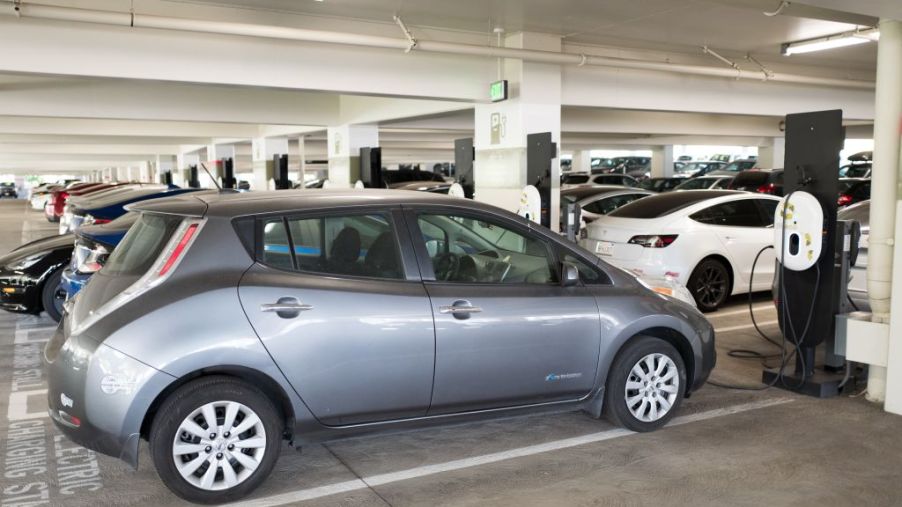
Are Electric Cars Worse for the Environment Than Gas Cars?
In journalism, there’s an informal rule called Betteridge’s Law which states that the answer to any headlines that ends with a question mark is probably “no.”
That’s not always the case for our articles but for this one, the answer is actually no, electric cars aren’t worse for the environment than gas cars.
There’s a lot of reasons for this and we’ll break them down, but in short, electric cars simply don’t have to fool regulatory agencies, like Volkswagen did, and the overall carbon footprint is simply smaller than that of traditional cars. Here’s why that is.
Emissions from driving
This part is very easy to talk about since electric cars simply do not have any emissions while you’re driving. It’s just how electric motors work. In fact, you’d emit more greenhouse gas emissions from passing gas while driving than your electric car does.
In comparison, according to the Environmental Protection Agency (EPA), the average gas car (with a 22 MPG fuel economy) produces 4.6 metric tons of carbon dioxide a year. That’s over 10,000 lb of carbon dioxide from driving a car. Thus, an electric car is infinitely better than a gas-powered car when it comes to this.
Production emissions
An electric car, like any car, has to be manufactured and that will naturally have a carbon footprint. This footprint comes from the mining of the minerals necessary for the car all the way to when the factory workers are actually assembling it.
One major difference between the production of those two cars is creating the lithium-ion battery that every electric car needs. In fact, that battery is a significant source of carbon emissions when an electric car is being made.
According to Popular Mechanics, creating a 100 kWh lithium-ion battery, which is the largest battery option that Tesla has, will generate about 17.5 tons of carbon dioxide. That is a lot of carbon dioxide but they go on to say that compared to most gasoline-powered cars, an electric car should become carbon neutral in less than 3 years of driving.
So yes, while the manufacturing of those massive batteries will emit a lot of carbon dioxide, it won’t take long for an electric car to make up for it.
Fueling and end-of-life emissions
Both electric cars and gas cars need to get fuel and the creation of that fuel will have a carbon footprint too. For gas cars, extracting the oil, transporting it to where it needs to go, and then refining it into gasoline is a process with a large carbon footprint.
For electric cars, it depends mainly on how you get your electricity and that varies based on location and personal choice. The EPA has a great page that shows you where your electricity comes from based on where you live. The national average though is that about 2/3rd’s of all electricity comes from fossil fuels.
Owners of electric cars can install solar panels on their homes to charge their cars with clean energy. Charging stations are also installing solar panels to reduce their carbon footprint.
However, even if you charge your batteries with energy from the grid, it will still be cleaner than driving a gasoline or diesel-powered car. According to the UCSUSA, even when accounting for where that electricity comes from as well as the entire lifecycle of the cars, electric cars will still generate about 1/3rd of the carbon dioxide of a gas-powered car. This difference will only get larger as clean energy sources become more widely available and as the lithium-ion batteries get recycled more efficiently.
It should be noted though that all of these calculations were done with the average American car which doesn’t get great fuel mileage to begin with. If you can find yourself a gas-powered car that gets over 84 MPG and emits far less emissions than the EPA’s standards, then that car will be more environmentally friendly than an average electric car. For now at least.



